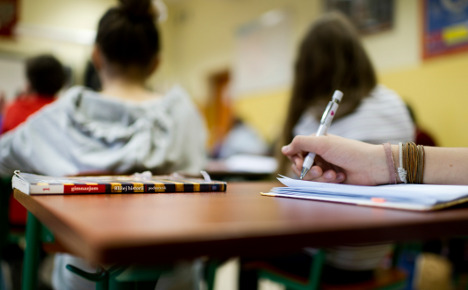EDUCATION
Liberals push to bring back behavioural grades
Sweden's Liberal Party said on Monday that it planned to bring back behavioural grades for students in middle school and high school.
Published: 12 August 2014 08:48 CEST

Photo: TT
Sweden's Liberal Party (Folkpartiet), headed by Education Minister Jan Björklund, launched its election manifesto on Monday with a particular focus on education.
"Schools are the most important issue of Sweden's future," he said.
The key election promises included introducing behavioural grading from the fourth grade and creating 10,000 new entry-level teaching positions.
Each school would be able to choose whether to introduce the grading system, and the marks would be given as a written comment – not a scaled grade as with science or maths.
"We should be aiming for Sweden to be in the top ten for the Pisa rankings. It's a very ambitious goal," Björklund added.
Sweden's schooling system has been plagued by bad press ever since the country's 15-year-olds suffered plummeting results in December's Pisa rankings. The students dropped below the OECD average in maths, reading comprehension, and natural sciences.
Swedes go to the polls in September.
Url copied to clipboard!


 Please whitelist us to continue reading.
Please whitelist us to continue reading.
Member comments